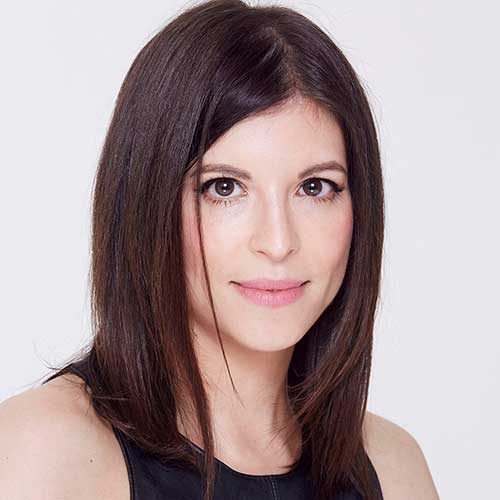Being empathetic and active listeners can help us be better friends, colleagues, and family members. And just like any other skill, our listening can be improved over time. Whether that means asking more questions, interrupting less often, or making an effort to keep eye contact, taking steps to listen more actively can deepen our connections.
We asked our Thrive community to share with us the little ways they’ve become better listeners. Which of these tips will you try?
Maintain eye contact
“To be a better listener, I maintain considerable eye contact with the other person, which helps me be ‘present’ with them, and hone in on their emotions when they are sharing. It reduces the possibility of any distractions, and helps the other person know that I am truly present in our conversation.”
—Aakriti Agarwal, psychologist and coach, Hyderabad, India
Eliminate distractions
“In my field, listening is key. As a matter of fact, I teach a class on Listening and Communicating. In order to listen effectively, you have to stop the distractions. You have to focus on the person that is talking and not what is going on around you. In essence, get rid of distractions, ask open-ended questions, and paraphrase if you have to. Most importantly, don’t judge!”
—Dr. Sandra Wright, professor and educational consultant, Atlanta, GA
Reiterate the person’s point
“When I was managing a staff of over 20 people, it was critical that I could remember their wants and needs, and not make them repeat themselves more than necessary. I would paraphrase and repeat back to them what they told me in a conversational manner to ensure that I heard and understood them. This also showed them that I truly cared about what they had to say. Listening tells people they matter.”
—Karisa Karmali, Ontario, Canada
Thank the person for trusting you
“I’m a problem-solver and want to jump in too quickly to help when people come to me with challenges. Sometimes they want me to help them solve the challenge. Sometimes they really just want someone to listen. I’ve learned to check my breathing and rather than jump in with ideas, I simply say, ‘Thank you for trusting me with your story.’”
—Donna Peters, former senior consulting partner, executive coach, Atlanta, GA
Put yourself on mute while others are talking
“Active listening has become even more critical while working from home, as it’s so easy to talk over each other on Zoom calls. What I have gained from listening more and talking less is you actually get much more out of the conversation. Instead of focusing on what I am going to say next and not really absorbing what is being shared, keeping myself on mute forces me to only come into the conversation when I have something pertinent or meaningful to share. It allows others who may be less forthcoming to participate and it cuts down on the noise.”
—Suzanne Schnaars, engineer, Basking Ridge, N.J.
Listen without thinking of solutions
“What’s helped me become a better listener is to stop trying to listen for the problem to fix. Your job is to listen and take in what’s being said. You can ask for clarifications while you are listening if you are unsure of their meaning, but stop trying to fix each part of the speaker’s issue as they are talking. The point is to let them lead and don’t interrupt with solutions. That may not be what they need right now. If they only need to be heard or to find a listening ear, be that for them.”
—Scott Miller, marketing director, Wilmington, DE
Take time for meditation
“Several years ago, I learned how to meditate to alleviate stress. I quickly realised that it also helped me become a better listener. I’m able to focus less on the ‘urgent’ thing I have to say during a conversation and truly listen. It has helped me gain a deeper understanding of the speaker and nurture meaningful relationships. It has also helped me become a better communicator. I’ve come to understand that something as simple as listening can have a big impact on those around me.”
—Rosaline Raj, corporate communications, Silicon Valley
Be mindful about the questions you ask
“I’ve found that the best listening I can offer someone is when I’m tuned in to what they need from me. Does the speaker just want encouragement? Or do they need help, a new way of reframing the situation we’re discussing? If they need encouragement, then I don’t really want to ask questions. If they need my help, then it’s time for questions, preferably ‘deconstructive’ ones that help the speaker break down the narratives that might be holding them back.”
—McKenna Sweazey, marketer, San Francisco, CA
Block off enough time
“To be a good listener, ensure you block time off. It should not be for one hour. Set aside 2-3 hours to ensure your friend has undivided attention. And confirm to your friend that you made time to have that long overdue talk. If you have a family, do it during school hours or when your partner is at home.”
––Niels Steeman, health coach, Bangkok, Thailand
Listen with empathy
“The most important tip that has helped me become a better listener is having empathy anchored as my pillar of communication. Being empathetic helps me put myself in my audience’s shoes and allows me to see the subject of discussion from their lens. This, in turn, enforces me to listen more actively to seek understanding of the subject. In addition, empathy also broadens acceptance for diversity and allows me to embrace the differences we have.”
—Michelle Chuang, marketing executive, Newport Beach, CA
Stay up to date or catch up on all our podcasts with Arianna Huffington here.
First published on 7 October, 2021 on Thrive Global.






